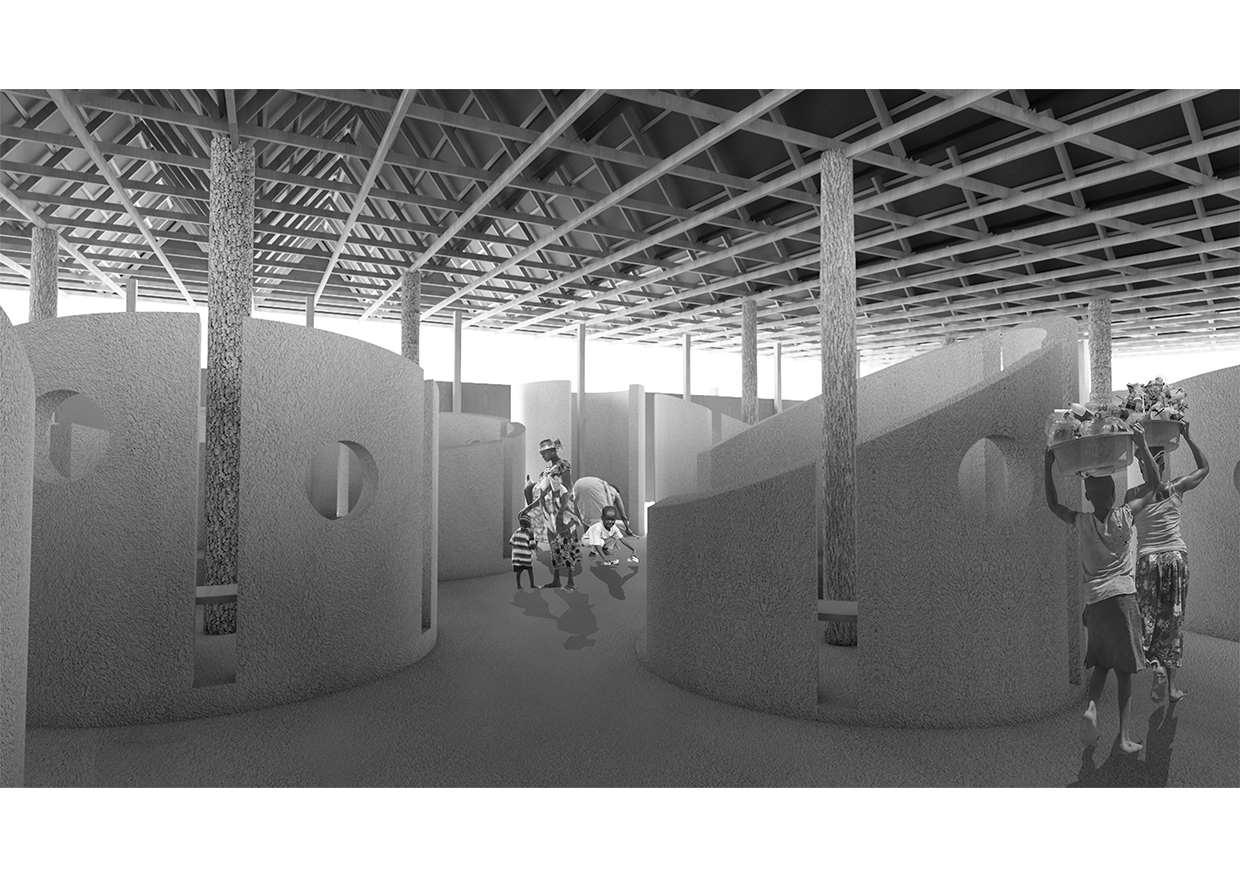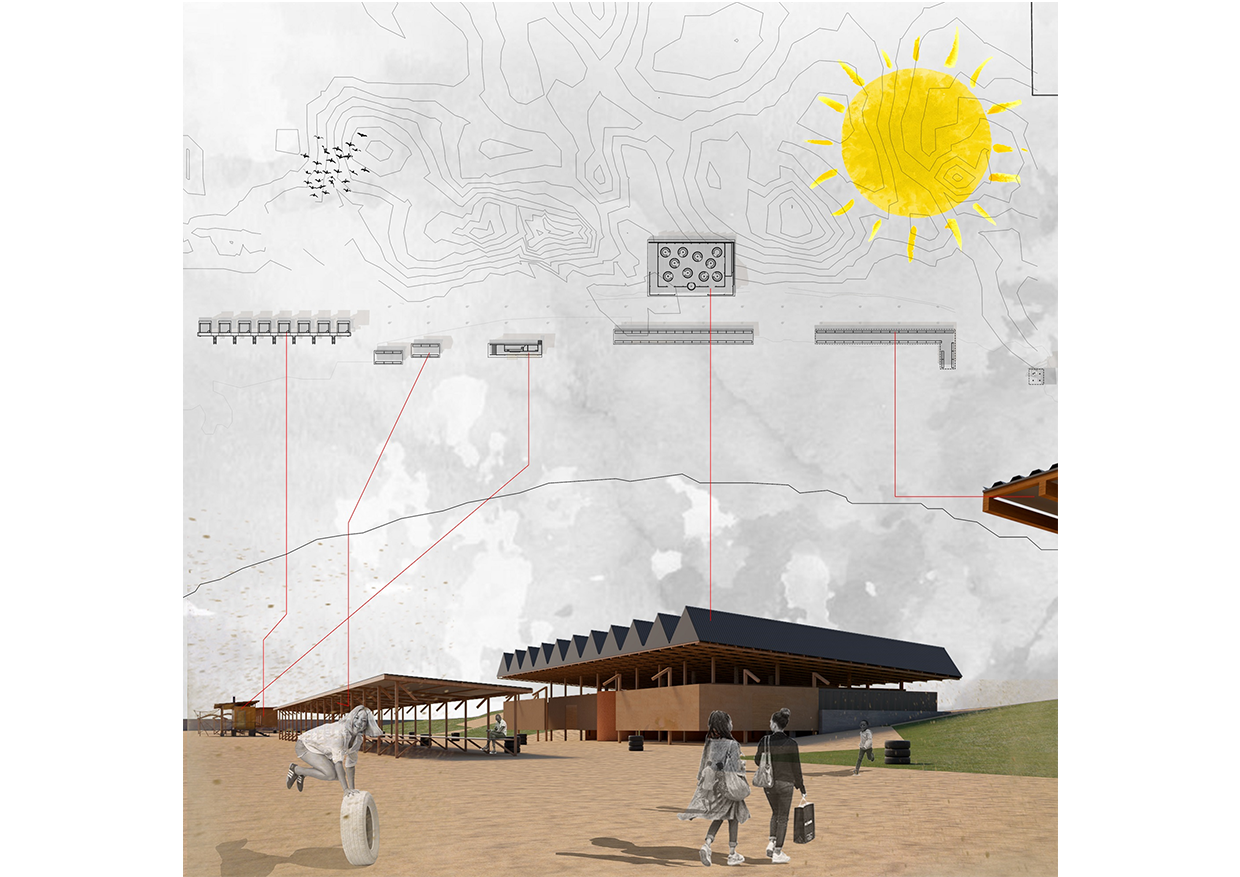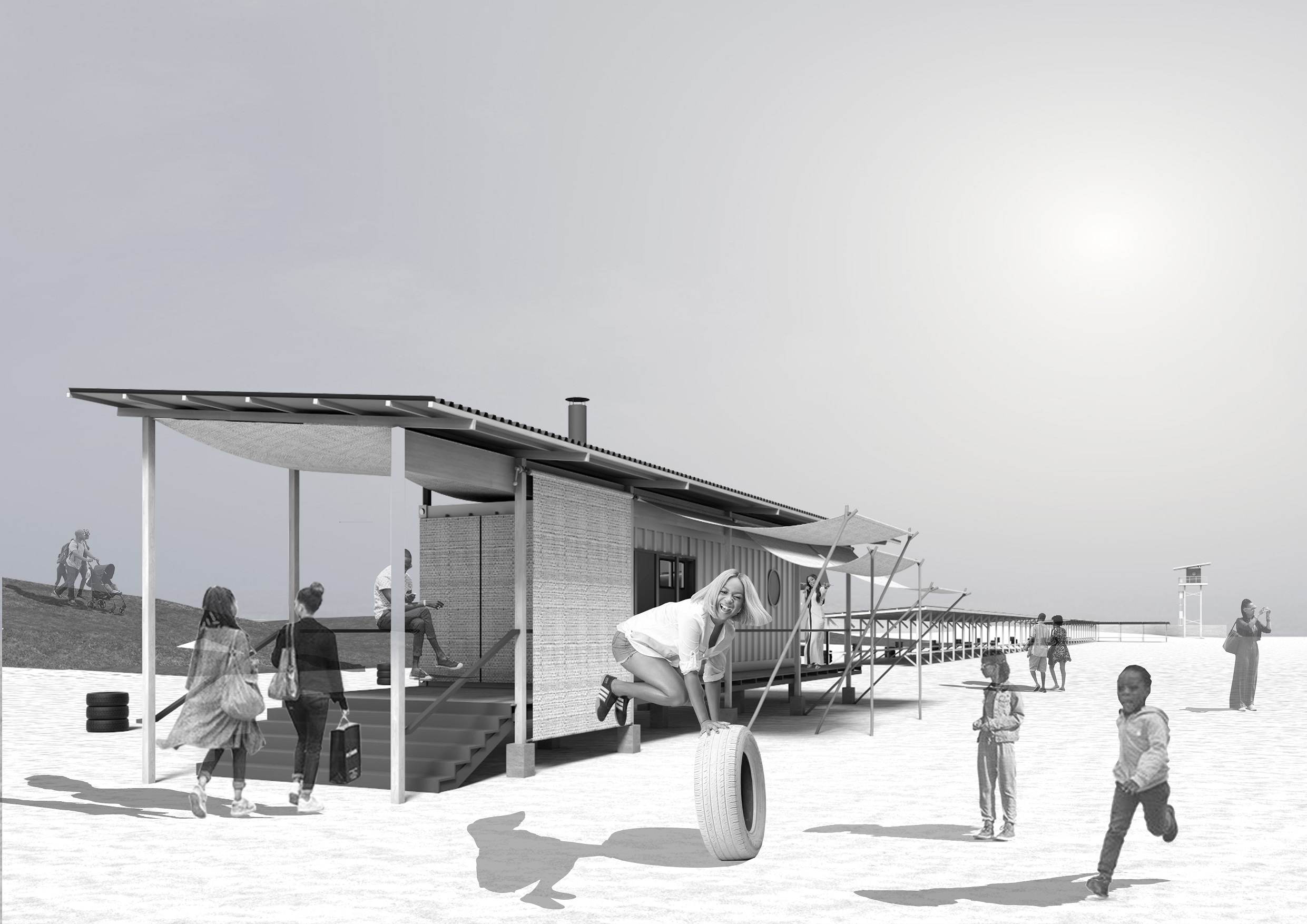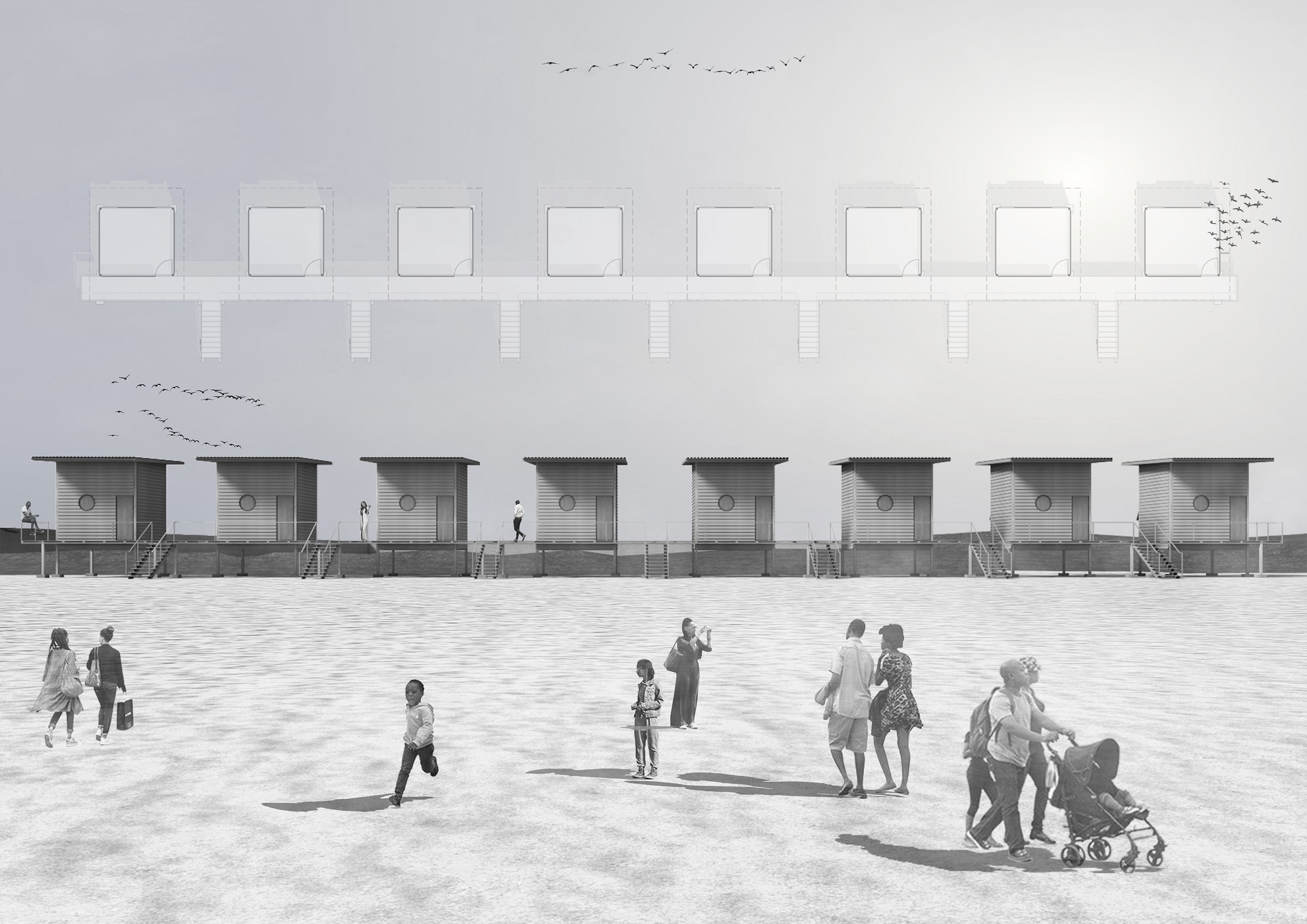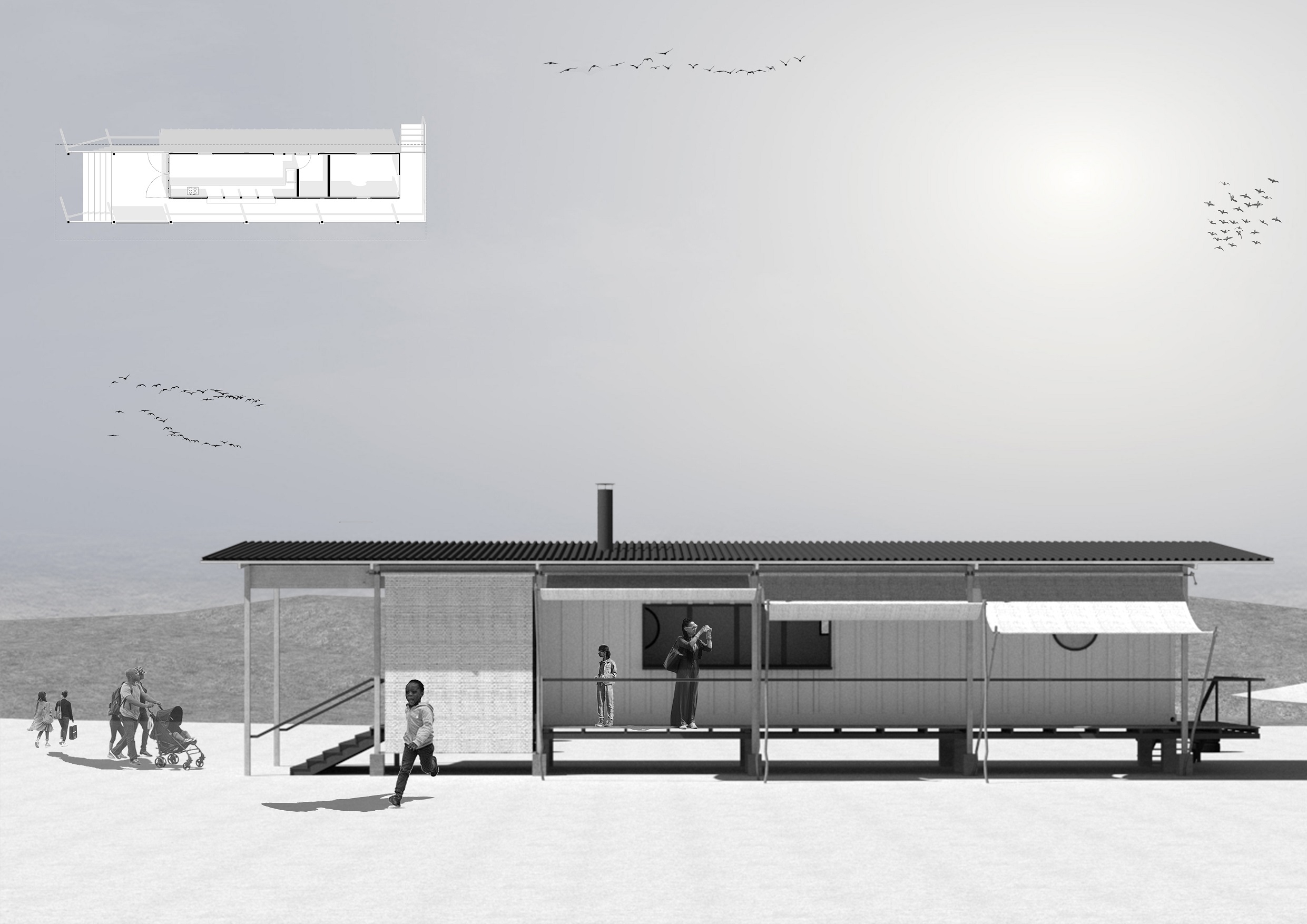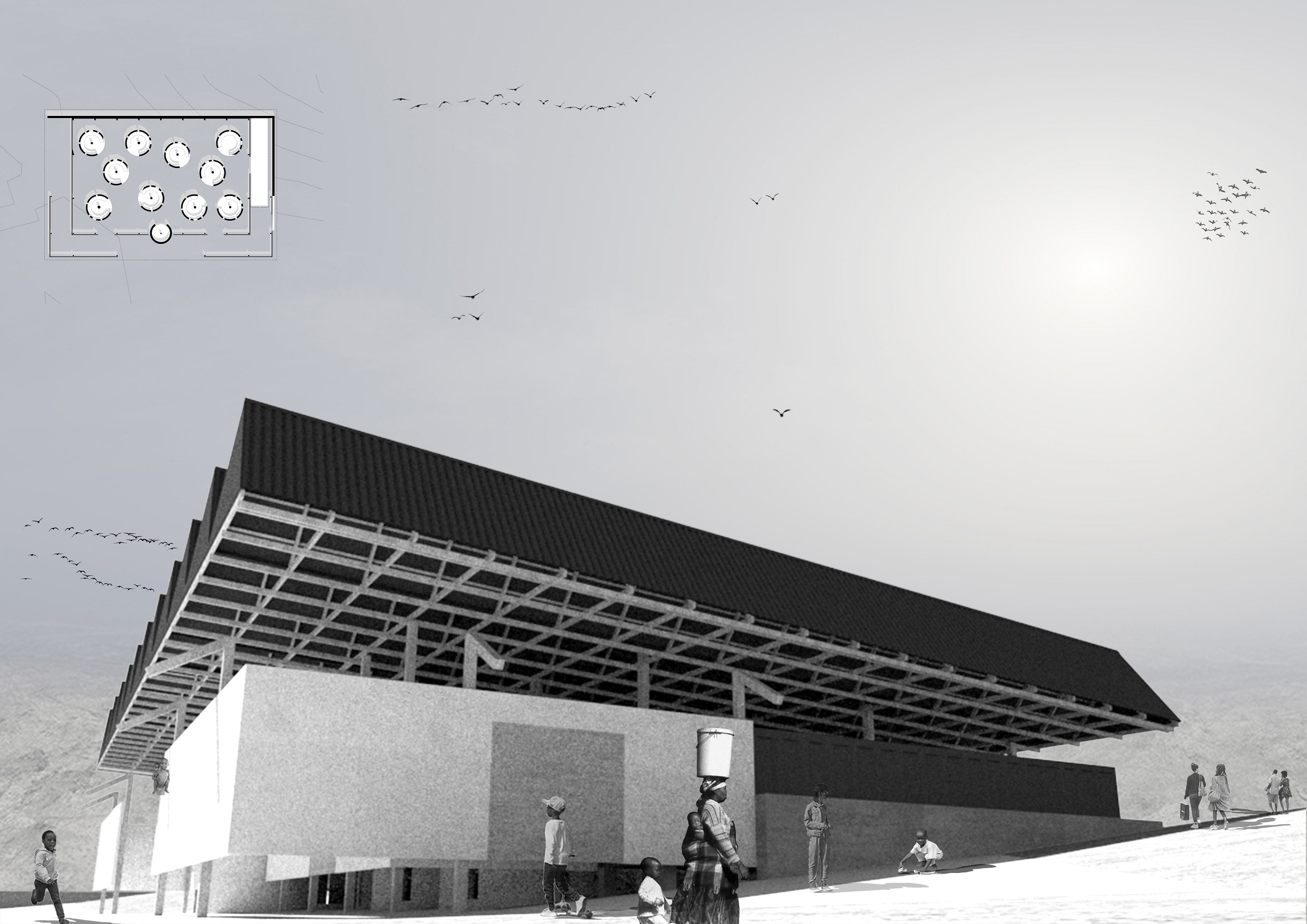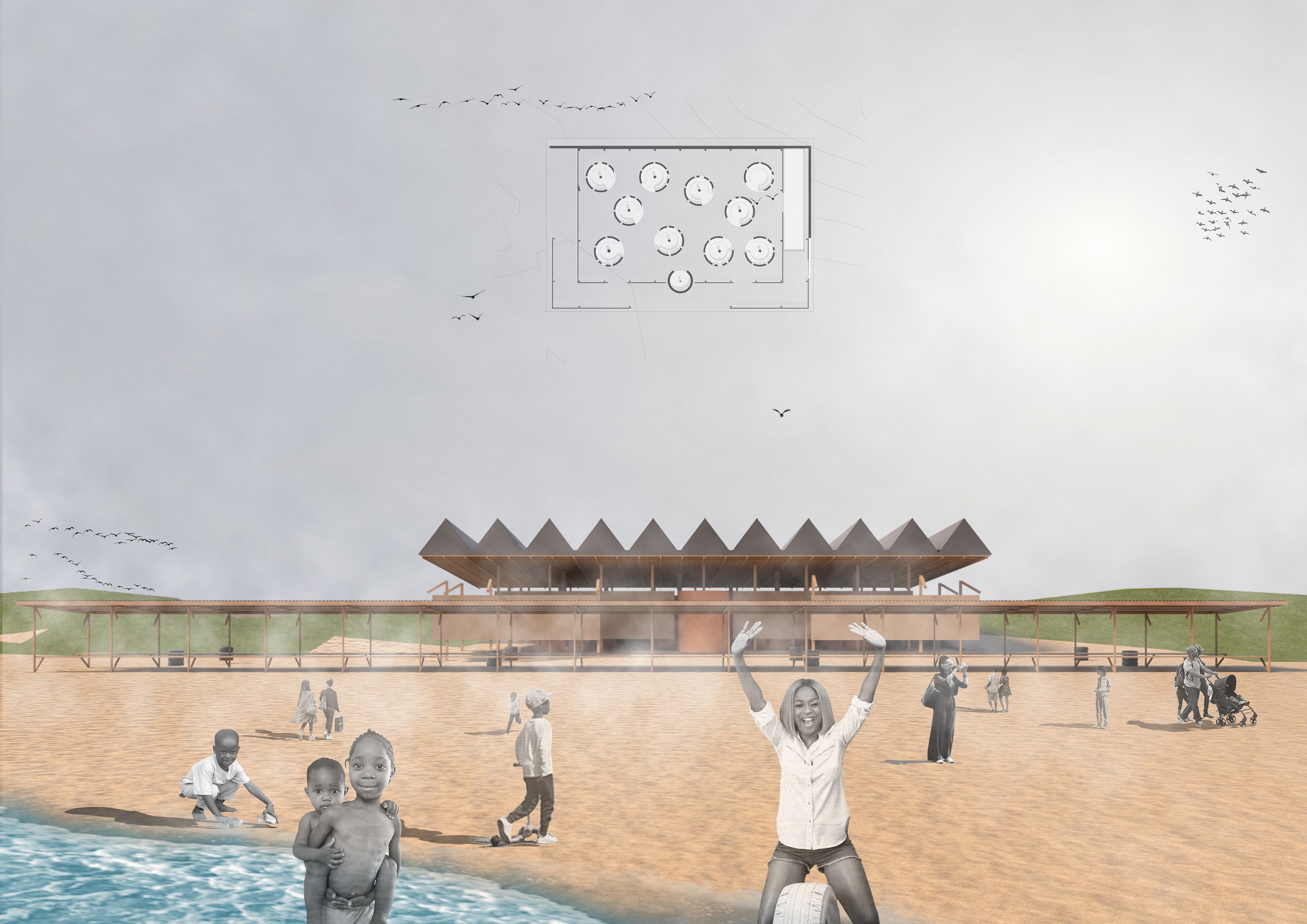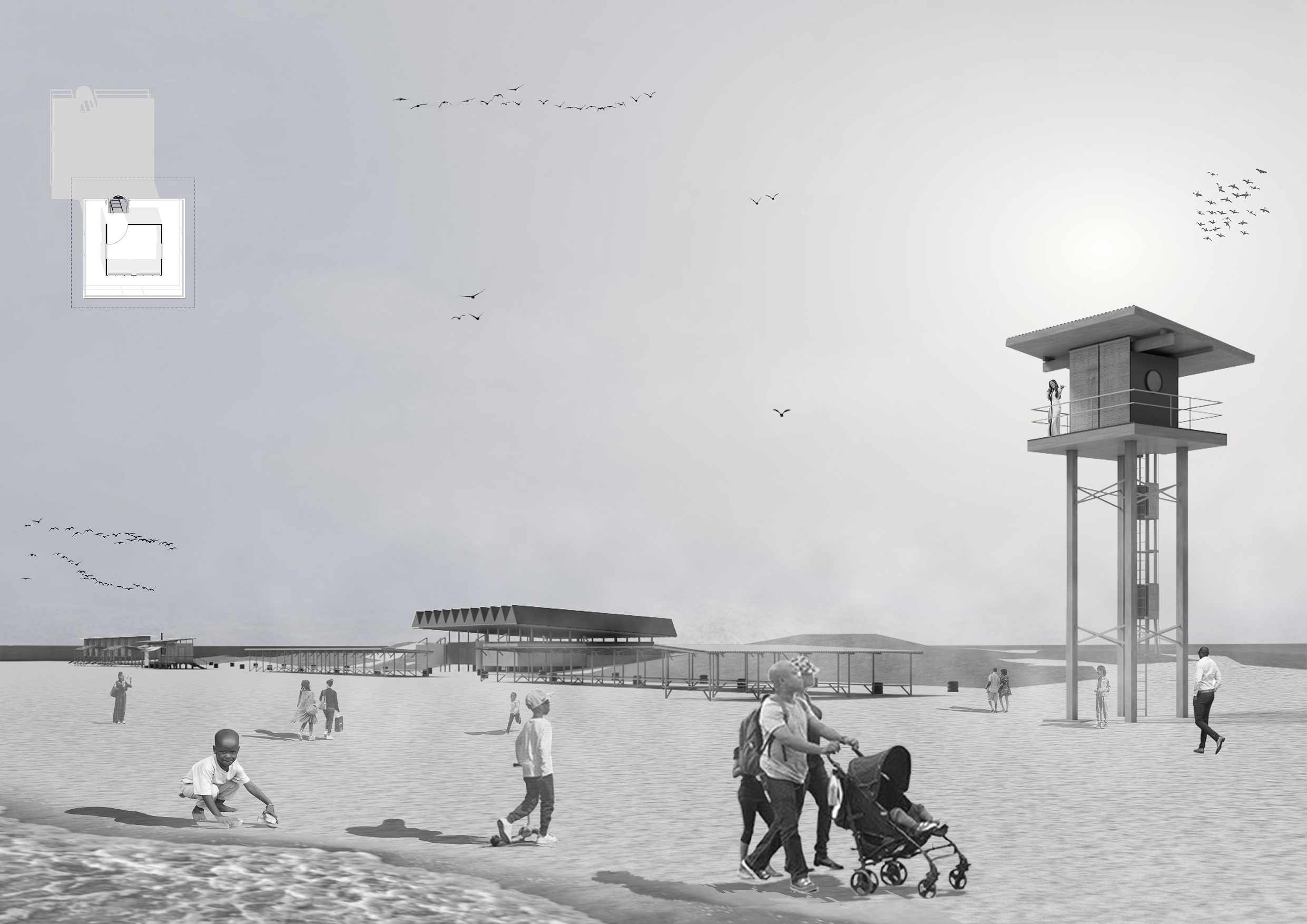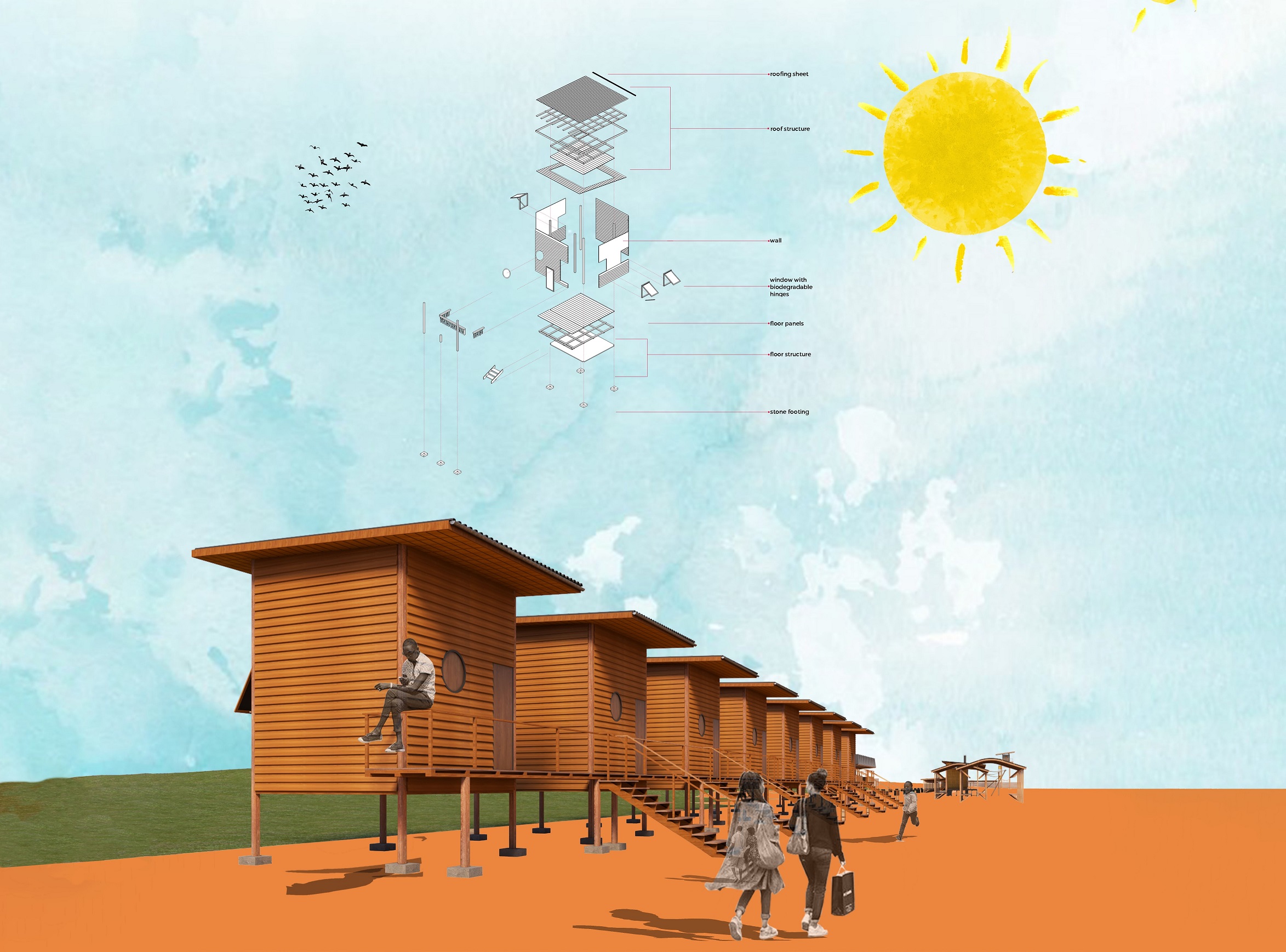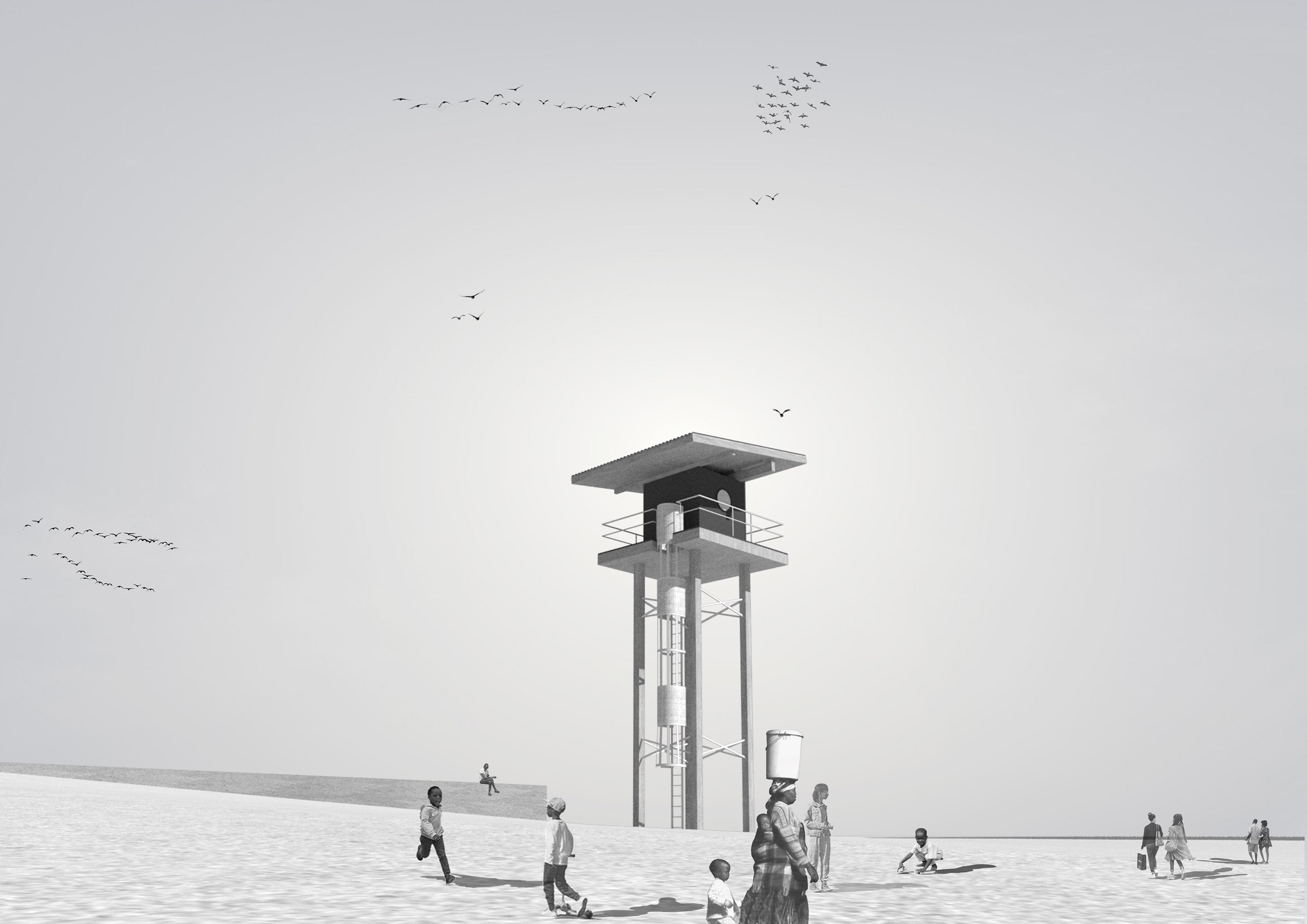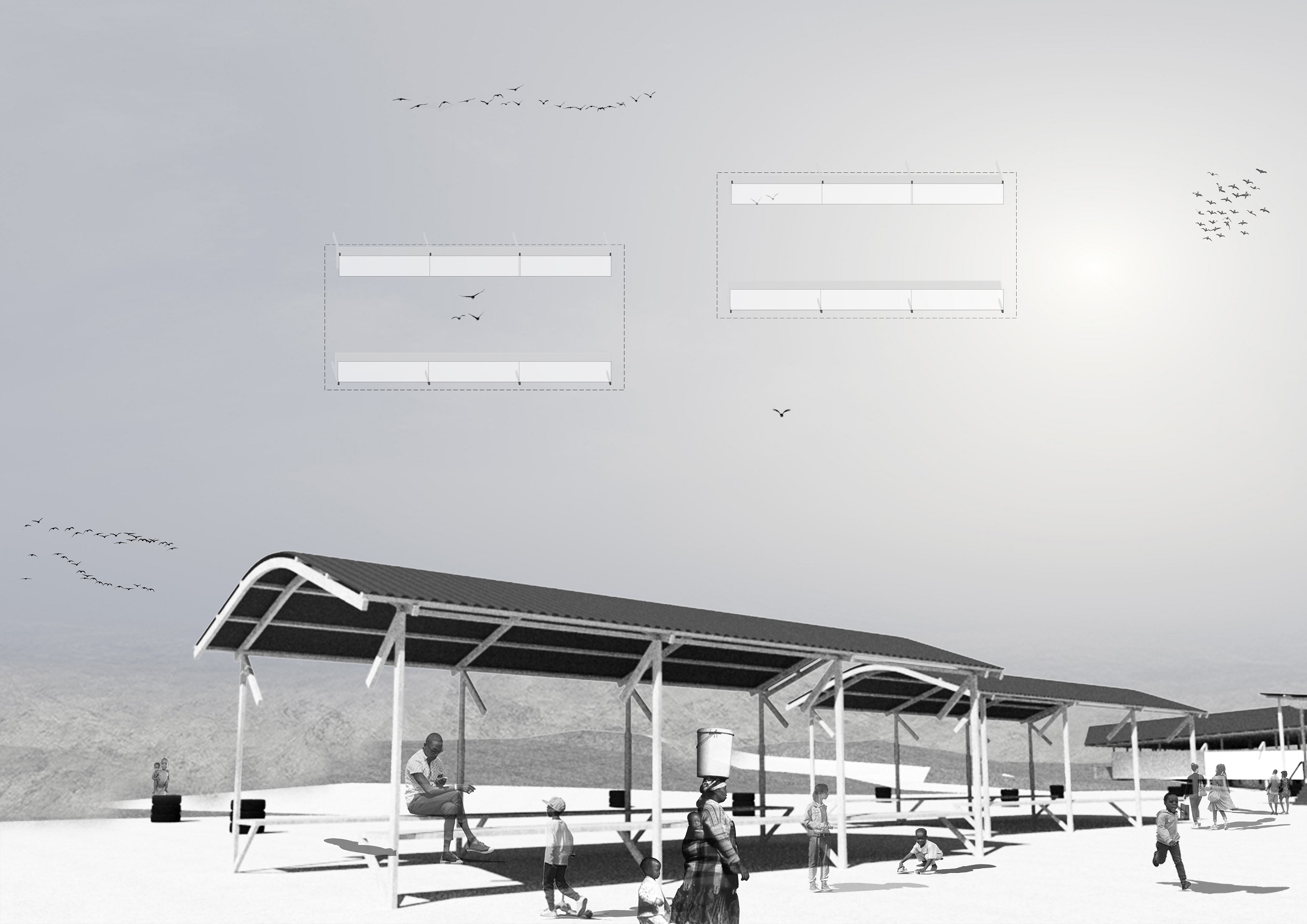The MEDIC beach project is an elaborate intervention on the Lekki beach operated and managed by the Mental & Environmental Development Initiative for Children (MEDIC). The project primarily is a plan that enables the beach to become a socio-spatial haven for the development of women and children as well as the protection of the environment. The environmental development goals of MEDIC are focused on climate change and life underwater. This coupled with the many programs for women and children has shaped the orchestration of the MEDIC Beach project.
The plan has established a series of Macro-programs for the 7.2 hectare site that has been licensed to the charity organization since 2015. The following programs orchestrated for the beach include a kids’ beach garden, a turtle sanctuary, a recycling unit, beach houses, multi-use sheds, a beach kitchen, a greenhouse & a watch tower. The project implementation has been staged into 3 phases: The first phase will see the construction & running of the recycling unit, the beach houses, the beach kitchen, the sheds & the watchtower. The second phase will focus on the development of the turtle sanctuary, the greenhouse & the upscaling of the beach garden. The masterplan is homogenized with pathways for pedestrians, bicycles & horses as well as socio-spatial strategies for the optimization of the goals of MEDIC
The African Contemporary Institute of Design (ACID) & the RUBAN office, is the master planner and designer of the project. The project is however in collaboration with the African studies unit of the University of California, at Berkeley. In the context of the master plan & design, volunteers at the UCB will collaborate in developing options, strategies or pathways through which the local Lekki context can be fully included in the project in a way that will aid identity throughout the project. The project is a charity project initiative by ACID in helping MEDIC to accelerate their development aspirations for women, children & the environment in the city of Lagos. It is expected that the project will set a valuable precedence for the instrumentalization of public space for social development in Sub-Saharan African cities. More collaboration is welcome.
